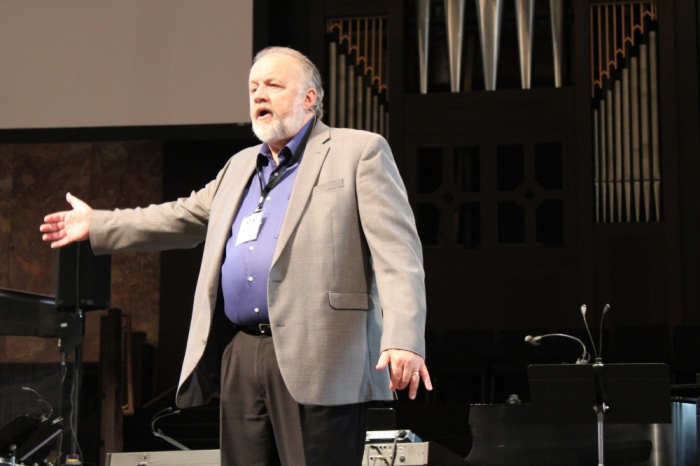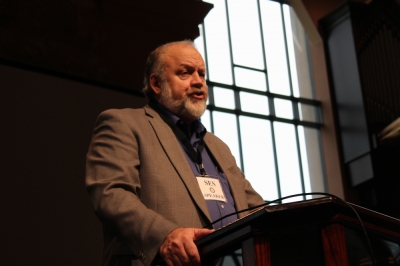A Generation of Skeptics Are Open to the Resurrection, Gary Habermas Says

CHARLOTTE — Due to the evidence, a generation of skeptics are now open to believing in the resurrection, the foundational event for the Christian faith, Gary Habermas explained at the Southern Evangelical Seminary's 21st Annual National Conference on Christian Apologetics.
Critics have recently begun to acknowledge facts central to Jesus' resurrection, he claimed.

Habermas, distinguished research professor and chair of the Department of Philosophy and Theology at Liberty University and visiting professor at Southern Evangelical Seminary, is an expert on the resurrection of Jesus Christ. He has written 18 books, and over 100 book chapters and journal articles on the topic. His next book will be 3,000 pages compiling his life work. Half of the book will be new material that does not appear in any of his previous books, Habermas announced during his talk.
One of the critics Habermas mentioned was Bart Ehrman, a former Evangelical Christian who has become an agnostic. Ehrman currently serves as the James A. Gray Distinguished Professor of Religious Studies at the University of North Carolina at Chapel Hill and has written or edited over 25 books on the life of Jesus and the New Testament. Several of his books have appeared on The New York Times best sellers list, including his most recent book, How Jesus Became God: The Exaltation of a Jewish Preacher from Galilee.
To make the strongest possible case, Habermas said he only uses evidence allowed by the critics, those who deny that the resurrection happened. Since the critics admit that Paul was a historical figure, had a genuine conversion experience and wrote seven of the 13 New Testament letters that Christians believe he wrote, he used only those seven Pauline epistles (Romans, 1 and 2 Corinthians, Galatians, Philippians, 1 Thessalonians and Philemon) to make his case. In particular, 1 Corinthians 15 is a central passage, which Habermas believes could hold the record for having the most publications about it than any other passage in Scripture.
The critics also acknowledge that Paul had his conversion experience somewhere between one and three years after Jesus' death, Habermas pointed out, and in Galatians, Paul noted that he went to Jerusalem three years after that. Fourteen years later, Paul recounts in Galatians 2, he returned to Jerusalem and met with three people who knew Jesus best — James, John and Peter.
Since Ehrman does not accept the traditional authorship of the four Gospels, he wrote that this meeting was the closest eyewitness accounts of the life of Jesus available, Habermas explained.
Paraphrasing Galatians 2:2, Habermas said it was at that second Jerusalem meeting that Paul compared what he had been preaching with what the other apostles had been preaching and they decided, "we're all on the same page."
This is important, Habermas explained, because it means it dates the Gospel message to only one or two years after Jesus died on the cross. In other words, if James, John, Peter and Paul are all on the same page in terms of the Gospel they are preaching, Paul was converted one to three years after the death of Jesus, and James, John and Peter began preaching that same Gospel even earlier than Paul, then that Gospel was preached within one to two years after the Cross, even by the evidence that the critics will acknowledge. And indeed, Habermas said, Ehrman and other critics have recognized this.
These early eyewitness accounts that even acclaimed critics accept are "knockout arguments for the resurrection," Habermas said.
"That's why a generation of skeptics are open to the resurrection evidence today," he added.




























